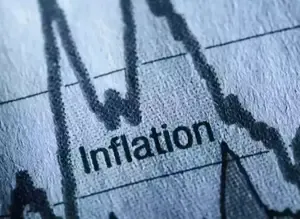South Korea: Retailer Sentiment Drops for Q2 Amid Inflation and Uncertainty

Synopsis
Key Takeaways
- Retailer sentiment in South Korea has worsened for Q2.
- The RBSI fell to 75 from 77.
- High inflation and uncertainties are major factors.
- Online retailers show slight growth.
- A financial aid package of 10.2 trillion won is introduced.
Seoul, April 8 (NationPress) The business sentiment among South Korean retailers has declined for the second quarter, affected by ongoing inflation and increasing uncertainties both domestically and internationally, according to data released on Tuesday.
The Korean Chamber of Commerce and Industry (KCCI) reported that its retail business survey index (RBSI) is at 75 for the April to June period, a decrease from 77 in the previous quarter.
The RBSI is derived from a survey of 500 retail establishments nationwide. A score below 100 indicates a greater number of pessimists than optimists, as noted by Yonhap news agency.
This index has consistently fallen since the second quarter of last year, underscoring a prolonged period of pessimism in the retail industry.
The KCCI attributed the decline in business sentiment to uncertainties surrounding U.S. trade policies, elevated inflation rates, fears of an economic slowdown, and political instability.
The downturn in the consumer market has continued, driven by a combination of negative internal and external factors.
Across all major retail categories, sentiment remained subpar. Department stores and discount stores experienced a significant decline, with their index dropping from 85 to 73 during the reported period. Meanwhile, the index for convenience stores fell to 71 from 73.
On a brighter note, the index for online retailers saw a slight increase from 74 to 76, while supermarkets moved up from 76 to 77. The survey also indicated that 49.8% of respondents anticipate a recovery in the consumer market after 2026.
The Bank of Korea has recently revised its economic growth forecast for 2025 to 1.5%, a reduction of 0.4 percentage points from its previous estimate.
Additionally, Woori Financial Group announced on Tuesday that it has organized a substantial financial support package totaling 10.2 trillion won (approximately $6.98 billion) to assist South Korean businesses in coping with the repercussions of reciprocal tariff measures implemented by the United States.
The group plans to enhance its liquidity assistance for export-oriented companies, their suppliers, and small businesses by launching a new program worth 7.3 trillion won alongside an existing 2.9 trillion won support scheme for companies.










